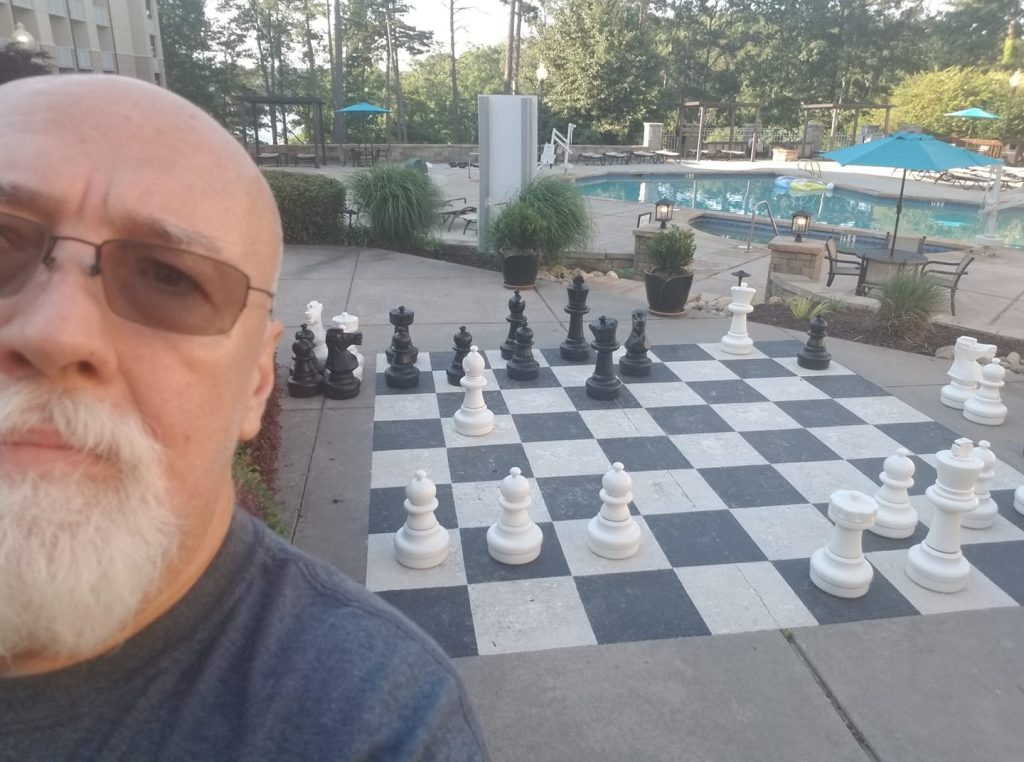
Mr. Parnell Watkins contacted me about a month ago, to inform me he was running for the position of Georgia Chess Association president. Since by then I just started my new chess website, I proposed him an interview to better inform the chess players in Georgia of his program and things which could be done for chess. My role is purely journalistic, I’m not endorsing or going against anyone, but I do care to inform.
Here the interview:
DN: Could you give us some of your chess background, history, and activities during the years?
PW: I began playing chess in 4th grade when the principal started a chess club. I (of course) lost to everyone, but started reading about chess and playing rarely. I remember the library had three chess books, two which I remember:
1) games by Botvinnik, and

2) Something by Fred Reinfield.
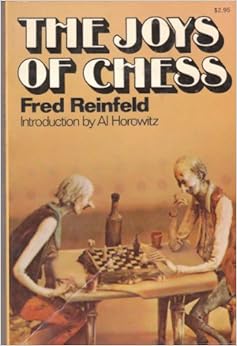
By the time I was in high school and started my own chess club, I had no one my own strength to play, so I started a city club where I found two other players in our small town about the same strength. We began traveling to tournaments and established my rating around 1700 (~1973). After High school I again stopped playing until I went to Europe in the US Army, where I played in the Bundeslige, earning a 610 rating (~1800). After my son’s birth, I returned to the states in 1983, where I did play two more tournaments and succeeded in dropping my rating below 1400 before deciding fatherhood, career, and chess do not mix, taking another break, playing chess only rarely.
I did not take chess back up until my second son took an interest in the game. I started coaching his homeschool group in 2008 and even playing occasionally. I have been playing, coaching, and directing ever since.
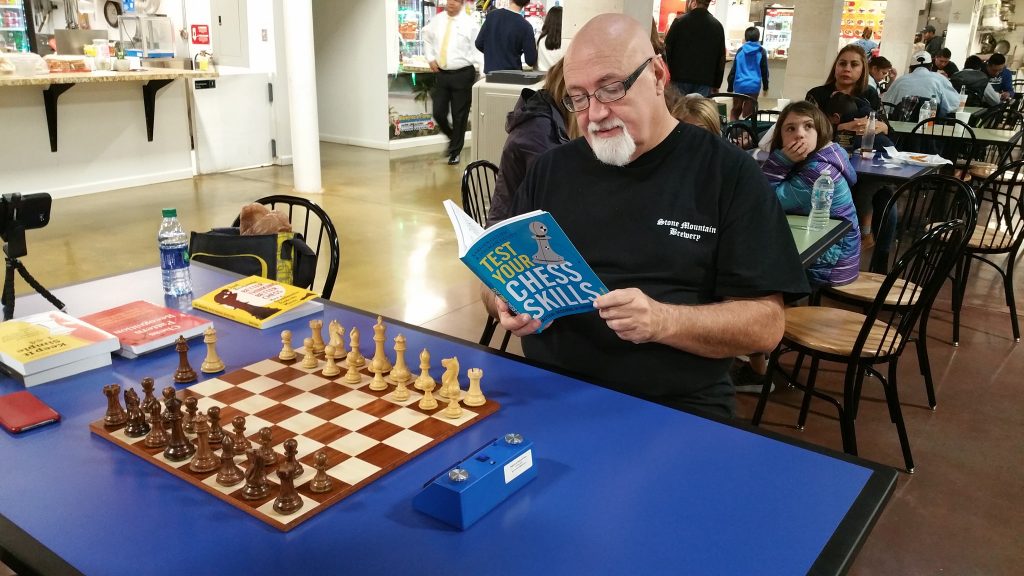
DN: I heard you are running for Georgia Chess Association president, could you tell us why, and what is your program if elected?
PW: The purpose of the GCA is to promote chess in Georgia. My experience working with the GCA both with Fun Fong and on the board after his departure, I learned this is not as simple a task as it appears. Fun did a wonderful job promoting scholastic chess, which is important to the future of chess in this state. He also did an excellent job fiscally by putting the GCA on a sound financial footing.
And while he did OK regarding adult chess play, he did not enjoy the same success. His efforts were often seen as in conflict with other tournament organizers, and efforts to support local chess clubs were ineffective. A different approach was/is required.
DN: Lichess proved there is a new business model, the non-profit, quite different from fake non-profits which ask for memberships and raise their prices. Lichess rates million of games and thousand of tournaments a year for free, what do you think about it?
There is a need to balance fiscal responsibility, member participation, and making chess more accessible. Expense is one of the prime inhibitors in meeting two of these goals. Since moving the magazine online, I have struggled with how the GCA should be funded. My current thoughts are that membership should come in two forms: 1) participation in tournaments, and 2) paid (supporting) membership. Those individuals who have played in at least 2 GCA tournaments in the past year should be considered members and eligible to vote. In the case of scholastic players, one of the parents can be designated to vote in the player’s interest.
This would require GCA to be more responsible with its tournaments as well. Instead of competing with other organizers on prize funds, costs should be kept down and the appeal based upon state titles, not running as many large tournaments as possible.
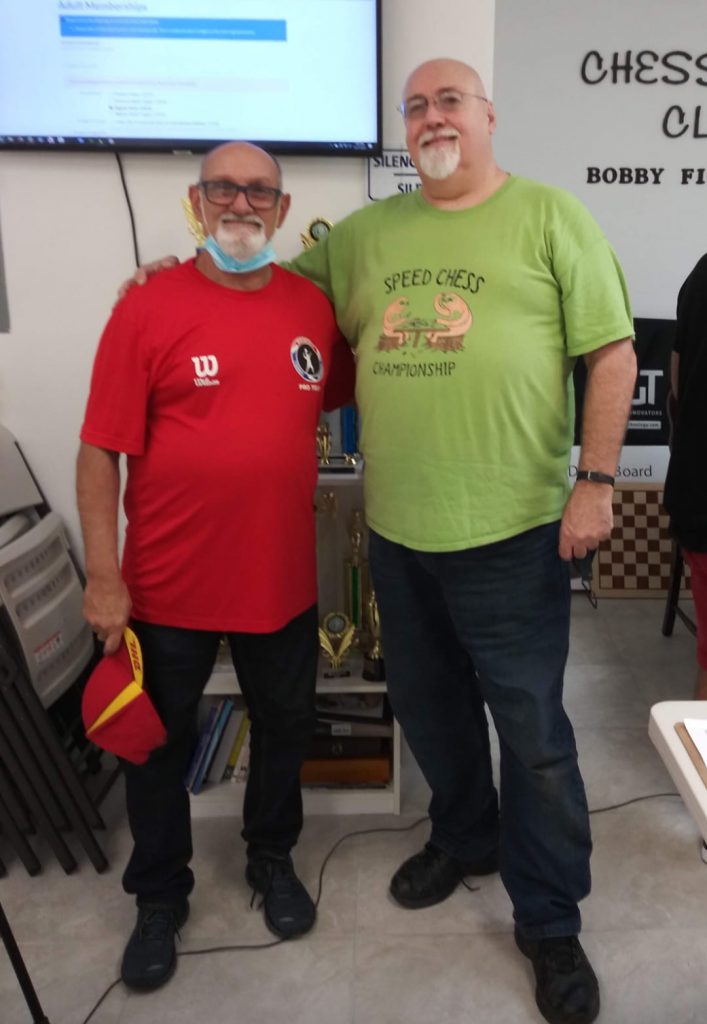
DN: US Chess just raised their prices for memberships, why they cannot be like Lichess in your opinion?
PW: I can not speak to US Chess, as I have no experience at that level. Their goal is to promote chess nationally, and their strategy appears to be based on the image of chess. I am pleased with the work that they do, and to the best of my knowledge, the costs are justified if we want the level of service they provide.
DN: The US population is becoming older, yet they are not involved in chess, also if there are studies which show mental benefits for seniors. Do you think they should become a priority for non-profit chess organizations?
Senior Centers should be a target for chess clubs. Again, supporting chess clubs is one of the best ways to promote chess in Georgia. The chess clubs I have seen in senior centers have been very successful. Finding volunteers willing to establish and keep a club active has been the limiting factor. This goes back to my point, we need to get more people active in Georgia Chess and the GCA.
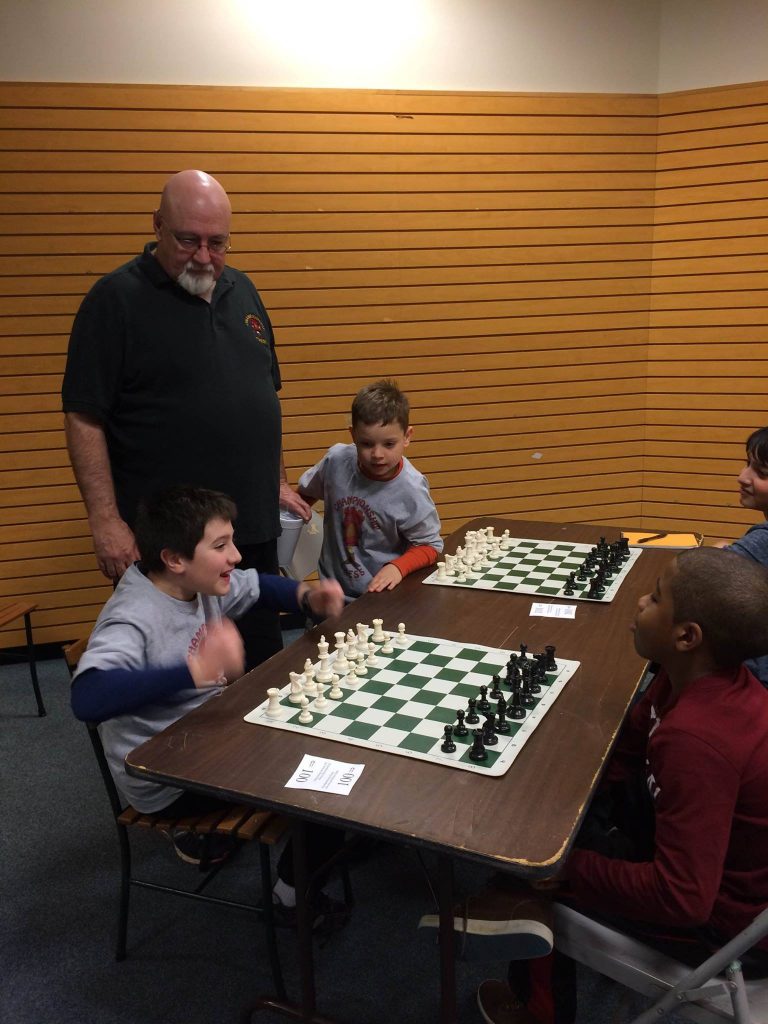
DN: It seems some tournament organizers (as well as USCF) don’t understand much about time controls and ratings. For example, many more players, with higher ratings, could come out to play if events were not dual rated (for example quick and long time control, and have only quick or long time control rated). Yet I fail to see organizers to take into account such idea.
PW: I have heard this idea before and have received a lot of positive feedback when proposing tournaments that were quick rated but not standard rating. The games are quite different, and not everyone plays well quickly.
DN: Unfortunately US chess asks a lot of money to rate events with lot of rounds, what would be your opinion of holding a Georgia Rapid State Championship, based on 15 rounds, and a Georgia Blitz State championship based on 21 rounds?
PW: A lot of money is relative. The cost for rated games is $0.25 per game, or about $0.12 per player per game. Money for rating an event is a minor cost, about $5 per player for such an event. This is an attractive idea for a blitz championship tournament.
DN: Do you believe US Chess should have more transparency and integrity as organization? What about the GCA?
PW: Again, I can not speak about US Chess. I have not participated in their meetings or sat on their panels, so can not say they are not transparent. I can say there is not much published about US Chess decision making, but that could be the fault of chess journalists. As for the GCA, they should be transparent. In general, anyone can attend any GCA meeting. There have been closed door meetings, but only rarely and many board members protest when they occur. A much larger problem is the lack of participation in the GCA. Decisions are typically made by the same few people with very few individuals giving arguments or opinions. This should change.
/GettyImages-918789286-24ee5f320f524f26b9adcb9e895b0600.jpg)
This is the end of the interview, I thank Parnell Watkins for giving me this chance to inform our Georgia Chess Players, and I’d like to add a warning about the difference in the voting system due to COVID which Parnell gave me in the beginning of the interview: “Be aware that votes are by mail in ballot only, no in person voting. Members must request a ballot to be considered. Also, I have not yet been given an exact date for the vote, so request ballots early.” With this last statement I wish everyone to be safe and let’s continue to work all together to improve chess in our beloved state!

Pingback: Email From New GCA President | Armchair Warrior